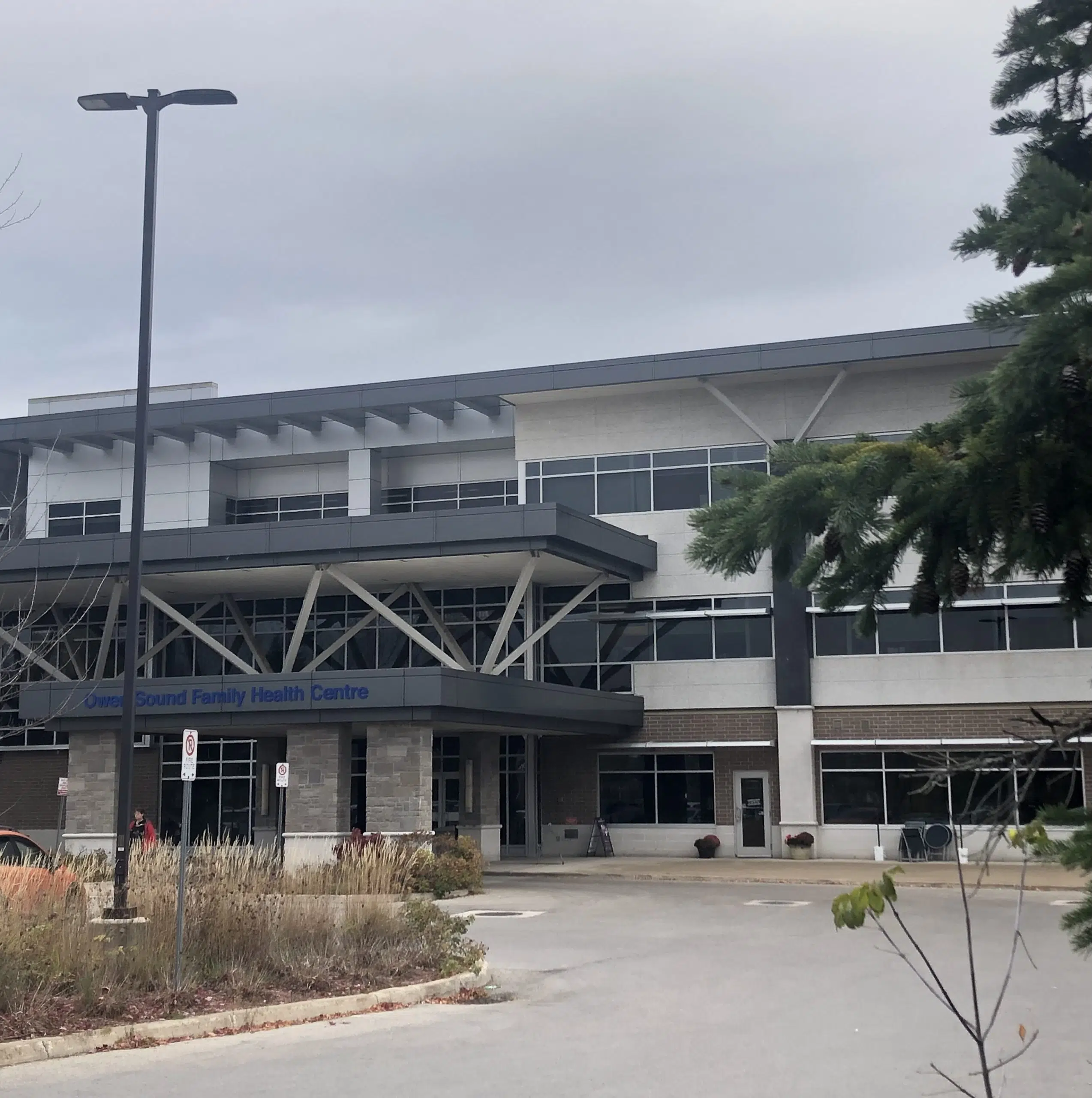
The Owen Sound Family Health Team building. (Matt Hermiz/Bayshore Broadcasting News)
Owen Sound is going to need about a dozen new family doctors within the next three years to keep up with physician retirements and population growth, and to serve those currently without primary care.
That’s according to a physician recruitment update report to Owen Sound’s corporate services committee from City Manager Tim Simmonds and Fire Chief Phil Eagleson. It is set to be discussed during Thursday’s meeting.
Mayor Ian Boddy: “As we know, post-war ‘baby boomer’ society is aging and we need doctors. We need new doctors to come in and replace some of those who will retire, plus with the increase and aging of the community we definitely need more doctors to cover all of the people that live in the area and use the Family Health Team in Owen Sound.”
Owen Sound currently has just under 24,000 Health Card holders and around 4,600 are not rostered to a family physician, the report says.
“It is important to note that the numbers above include only the residents registered on Health Care Connect who do not have a doctor. We estimate the number of patients living in Owen Sound who do not have a doctor locally could be as high as 6,000,” explains the report from Simmonds and Eagleson. “It is further estimated that 15,000 people are without a primary care practitioner in the broader area served by the 21 physicians of the Owen Sound Family Health Team.”
An Owen Sound Community Primary Care Recruitment Task Force re-emerged late last year. It is working to address things like physician retirements, workforce burnout, the increasing needs of an aging population and an influx of newcomers to the city.
The report to the corporate services committee says supporting work to attract primary care professionals and new residents to help plan career paths and family life in Owen Sound is one of the goals of the eight-person Primary Care Recruitment Task Force.
Some future priorities could include more collaboration to support regional recruitment efforts, and engaging municipal neighbours to develop long-term cooperative strategies to increase access to primary healthcare, the report explains.








